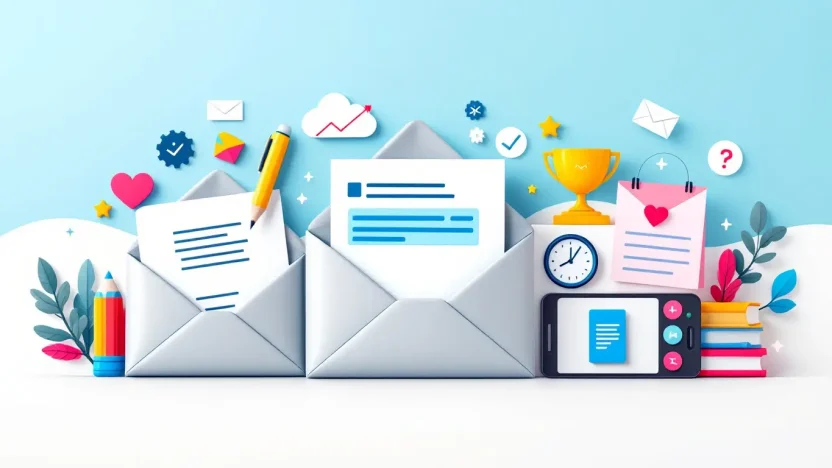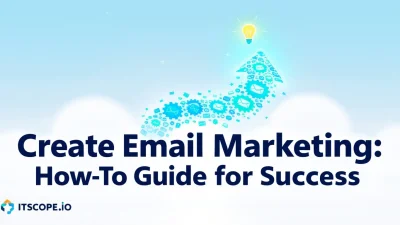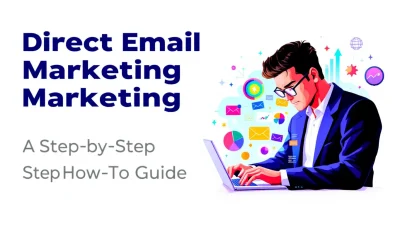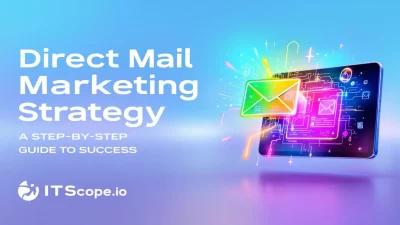In the fast-paced world of professional communication, mastering the art of email is non-negotiable. Enter the Business Email Glossary—your essential guide to navigating the often perplexing landscape of email correspondence. Whether you’re fine-tuning your email etiquette or mastering the technical jargon, understanding these key terms can elevate your communication skills and give you a competitive edge in any industry.
Dive into this ultimate glossary to uncover insights that will transform how you approach business emails, ensuring clarity and professionalism in every message. Ready to become an email aficionado? Here’s what you’ll discover in this guide.
Table of Contents
- Introduction to Business Emails
- Key Email Terminology Every Professional Should Know
- Understanding Email Protocols and Technologies
- Email Etiquette: Dos and Don’ts
- Advanced Email Strategies for Professionals
- FAQs
- Conclusion
Introduction to Business Emails
In the fast-paced world of professional communication, understanding the nuances of business emails is essential. Whether you’re crafting your next pitch or handling customer inquiries, a well-structured email can convey professionalism and clarity. This guide sheds light on the business email glossary, ensuring you grasp the fundamental email terminology vital for effective communication.
Why is a business email glossary important? Imagine you’re in a meeting, listening intently as colleagues throw around terms like ‘bounce rate’ or ‘IMAP,’ and you’re struggling to keep up. Yikes! That’s where a thorough understanding of email jargon comes into play, demystifying these concepts so you’re always in the loop.
Significance of Business Emails
Did you know? Business emails are still one of the most effective communication tools in the professional world. They bridge the gap between informal messaging and formal communication, making them indispensable.
- Emails ensure a trackable, professional medium for documenting conversations.
- They hold a unique position in marketing, enabling targeted outreach and engagement.
With email platforms evolving rapidly, staying updated on the latest business email glossary is crucial. This glossary not only defines key terms but also provides context so you can communicate more effectively.
Key benefit of using a business email glossary: It elevates your communication skills by providing clarity and enhancing your understanding of industry-specific terminology.
Ready to dive deeper? Let’s explore what each term means, its relevance, and how mastering this glossary can transform your professional interactions. For further insights on email-related topics, consider resources like L-Soft or Mailgun’s glossary for a broader perspective.
Key Email Terminology Every Professional Should Know
In the fast-paced digital world, understanding the business email glossary is essential for professionals aiming to communicate effectively and boost engagement. But what exactly is email terminology, and why does it matter? Let’s dive in.
Essential Terms
Equip yourself with these vital email terms.
- Autoresponder: An automated email sent in response to a user’s action, crucial for nurturing leads efficiently.
- Bounce Rate: The percentage of emails that fail to reach recipients, often due to invalid addresses.
- Call to Action (CTA): A prompt encouraging readers to take specific actions, key in driving conversions.
Advanced Email Vocabulary
Expand your expertise with these advanced terms from the business email glossary.
- DKIM (DomainKeys Identified Mail): A method for validating the authenticity of an email’s origin, boosting security.
- Phishing: A fraudulent attempt to obtain sensitive information under the guise of a trustworthy entity.
- Whitelist: A list of approved email addresses or domains that bypass spam filters, ensuring important communications aren’t missed.
Benefits of Mastering Email Terminology
Why should professionals familiarize themselves with email terms?
- Improves communication clarity.
- Enhances marketing strategies.
- Boosts digital security and credibility.
Understanding the business email glossary helps professionals communicate clear, impactful messages, leading to higher engagement.
| Email Term | Description |
|---|---|
| Blacklist | A list of addresses marked as spam, affecting deliverability. |
| Signature | A personalized sign-off included at the end of an email. |
| Spam Filters | Tools that identify and block unwanted emails. |
For further reading, explore our guide to mastering email promotion. Additionally, delve into more specialized terms available at Lsoft’s glossary and Mailgun’s glossary to broaden your proficiency.
Understanding Email Protocols and Technologies
In the vast world of email communication, understanding email protocols and technologies is paramount. These elements anchor the way we send and receive messages, affecting how we manage our inboxes and conduct business. Whether you’re a seasoned tech enthusiast or exploring the nuances of email for the first time, mastering these concepts within the business email glossary is crucial. But what exactly are email protocols, and why should they matter to you?
The Key Email Protocols
When you send or receive emails, several email protocols work in the background to ensure messages get from point A to point B efficiently. Here’s a breakdown of the most important ones:
- SMTP (Simple Mail Transfer Protocol): The backbone of internet email, SMTP sends messages from your email client to the recipient’s server. It’s akin to the postman of the digital world.
- IMAP (Internet Message Access Protocol): IMAP allows you to access and manage your emails directly from the server, maintaining synchronization across multiple devices. Perfect for the modern professional who’s always on the move.
- POP3 (Post Office Protocol, version 3): Unlike IMAP, POP3 downloads emails to your device, removing them from the server. It’s ideal for offline email access but less friendly if you need device-agnostic access.
Cutting-edge Email Technologies
Email technologies continually evolve, shaping how businesses utilize this communication method. Let’s explore some advancements:
- Email Encryption: To secure email communications, encryption technologies like SSL/TLS protect sensitive data from prying eyes.
- SPF, DKIM, and DMARC: These technologies authenticate emails, ensuring they are sent from legitimate domains, reducing spam and phishing risks.
- AI-driven Spam Filters: Artificial intelligence helps identify and filter out unwanted emails, refining your business email experience.
Understanding these technologies is pivotal in navigating modern email landscapes effectively.
For more insights into how these protocols and technologies integrate into broader email strategies, check out our comprehensive guide on email promotion. Further definitions can also be found in this email terminology glossary or at Mailgun’s glossary.
Email Etiquette: Dos and Don’ts
Mastering email etiquette is crucial for professionals navigating today’s digital landscape. Understanding the business email glossary can help you communicate effectively and maintain professionalism. Here’s a quick guide on the dos and don’ts of email etiquette to keep your communications clear and respectful.
- Do Use a Professional Tone: Always maintain a formal and respectful tone, starting with an appropriate greeting and ending with a courteous closing.
- Don’t Overuse CC/BCC: Limit your cc/bcc actions to relevant recipients to avoid cluttering inboxes unnecessarily.
- Do Proofread Before Sending: Take the time to check for grammar, punctuation, and spelling errors to present a polished image.
- Don’t Use All Caps: Using all caps in your message can come across as shouting, which is frowned upon in email terminology.
- Do Be Clear and Concise: Structure your message logically, and get straight to the point to keep the reader engaged.
Importance of Email Etiquette
Good email etiquette fosters clear communication and builds trust among professionals. It reflects well on your brand and can enhance relationships with clients and colleagues. For more on how professional emails impact your brand, check our comprehensive guide on email promotion.
Email etiquette is critical for maintaining professionalism in business communications.
Learning from different sources like the comprehensive email glossary ensures that you not only understand technical jargon but also the nuances of effective communication. Master these dos and don’ts to communicate like a pro!
Advanced Email Strategies for Professionals
Have you ever wondered how to elevate your business emails from ordinary to extraordinary? Mastering advanced email strategies will revolutionize your communication. Whether you’re a seasoned professional or just starting, the business email glossary will be your guide to navigate the intricate landscape of email terminology confidently.
Personalization and Segmentation
Effective emails speak directly to the recipient. Personalizing emails based on the recipient’s behavior and preferences can markedly increase engagement rates. It’s crucial to segment your email lists to ensure each message resonates with targeted individuals. This section of the business email glossary helps understand these advanced concepts in detail.
Personalized emails deliver six times higher transaction rates than generic ones.
Automated Workflows
Time is precious. Automated email workflows are your ally in efficiently managing communication flows. They ensure timely and consistent engagement, freeing you to focus on other critical tasks. Discover practical workflow strategies under our detailed business email glossary.
Analyzing and Optimizing
Analyzing email performance provides insights into what’s working and what’s not. Use built-in tools available in most email platforms to optimize your strategies, informed by the right metrics. For an in-depth overview of useful metrics, see our guide on Email Promotion.
A quick glance at key strategies:
- Split Testing: Experiment with different elements in your emails to see what your audience responds to best.
- Time of Sending: Consider the best times for your audience. Test and evaluate regularly.
Emerging Trends and Technologies
Email marketing is constantly evolving. Stay ahead by keeping an eye on emerging trends, from AMP emails to AI-driven content. Educate yourself continuously through resources like the Mailgun Glossary.
Explore these advanced strategies to unlock the full potential of your business emails, leveraging insights from a comprehensive business email glossary.
FAQs
What is a Business Email Glossary?
A business email glossary is a comprehensive list that defines terms and jargon used in professional email communication, helping professionals decode industry-specific email terminology. For more, refer to this in-depth guide on email terms.
Why Does Understanding Email Terminology Matter?
Understanding email terminology is crucial for professionals who frequently engage in digital communication. It ensures clarity and efficiency, reducing the risk of miscommunication. Visit Lsoft’s glossary for further exploration.
How Can the Business Email Glossary Improve Professional Communication?
By familiarizing yourself with the business email glossary, you enhance your ability to understand and use email communication effectively. It streamlines workflows and boosts efficiency. Check out this resource for more terms.
What Are Common Misunderstandings Regarding Email Terminology?
Common misunderstandings often arise from ambiguous terms that differ in meaning based on context. Exploring a business email glossary helps clarify these terms, creating a shared understanding. Explore related tips in our comprehensive guide to mastering engagement.
Is a Business Email Glossary Necessary for All Professionals?
While not all professionals may need to memorize a business email glossary, understanding key terms can significantly assist in professional growth, especially in roles that prioritize digital communication.
Conclusion
The ultimate business email glossary is an invaluable tool for professionals seeking to master email terminology. By familiarizing yourself with these terms, you enhance understanding, improve communication, and boost productivity in any business setting. Our guide not only introduces essential jargon but also empowers deeper engagement with email strategies. Whether exploring email promotion techniques or diving into advanced concepts, this glossary serves as your go-to reference.
Understanding the business email glossary accelerates your ability to adapt in fast-paced digital environments.
For further exploration, check out resources like the L-Soft Glossary and Mailgun’s Terminology Guide. As you continue your journey, remember that mastering these terms can significantly impact your digital interactions. Ready to delve deeper? The road to mastering email communication starts here.



